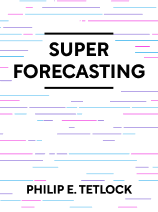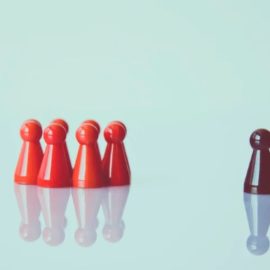

This article is an excerpt from the Shortform book guide to "Superforecasting" by Philip E. Tetlock. Shortform has the world's best summaries and analyses of books you should be reading.
Like this article? Sign up for a free trial here .
What are the defining characteristics of growth and fixed mindsets? What is the belief system behind each mindset?
The concept of growth and fixed mindsets was developed by American psychologist Carol Dweck. People with a growth mindset believe that skill excellence and accomplishment are achieved through practice. In contrast, people with a fixed mindset attribute success to inborn abilities.
Read about the characteristics of growth and fixed mindsets.
Growth Mindset and Fixed Mindset
Carol Dweck developed the concept of growth and fixed mindsets to describe the underlying beliefs people have about success and achievement. People with a growth mindset believe that talent and intelligence can be developed through learning and practice. The fixed mindset tells us that talent and intelligence are traits we’re born with, so the practice can only strengthen the natural abilities that are already there.
To illustrate this difference, imagine a child getting a bad grade on a math test. If the child has a fixed mindset, they might say, “I’m just bad at math,” and accept their fate. They see mathematical ability as a fixed trait, which means trying to improve seems as futile as trying to get taller.
On the other hand, a child with a growth mindset might be upset about a bad grade but would see it as an opportunity to improve. Instead of thinking, “I’m just bad at math,” they’re more likely to think, “I still don’t understand this, so I should keep working on it.” They believe their effort is meaningful, so they keep trying (and therefore keep improving). They don’t see themselves as inherently “good” or “bad” at math—that ability is just a skill they’ve improved through practice.
Learning From Failure
Fittingly, a growth mindset is also an ability that can be developed with practice. Abstract learning is not enough, just like reading about riding a bike isn’t enough to actually learn how to ride one. To really learn, we have to be willing to try—and willing to fail.
Learning a skill requires two things: tacit knowledge (knowledge gained from direct experience) and effective feedback. For physical skills like riding a bike, feedback is immediate and unambiguous—if you do something wrong, you fall. But for more abstract skills, quick and clear feedback isn’t a given.
- For example, research shows that police officers don’t get better at spotting when a suspect is lying, even after gathering tacit knowledge through years of experience. Why? Police officers rarely get clear, immediate feedback on those judgment calls. Their decision is part of a series of events in a complex system that can take months or even years to render a decision about whether someone is telling the truth.
- Not only is the feedback delayed, but the complicated process makes it less clear whether a particular officer’s judgment was correct. In the absence of solid feedback, officers mistakenly assume that experience alone improves their judgment and can easily become overconfident.

———End of Preview———
Like what you just read? Read the rest of the world's best book summary and analysis of Philip E. Tetlock's "Superforecasting" at Shortform .
Here's what you'll find in our full Superforecasting summary :
- How to make predictions with greater accuracy
- The 7 traits of superforecasters
- How Black Swan events can challenge even the best forecasters






